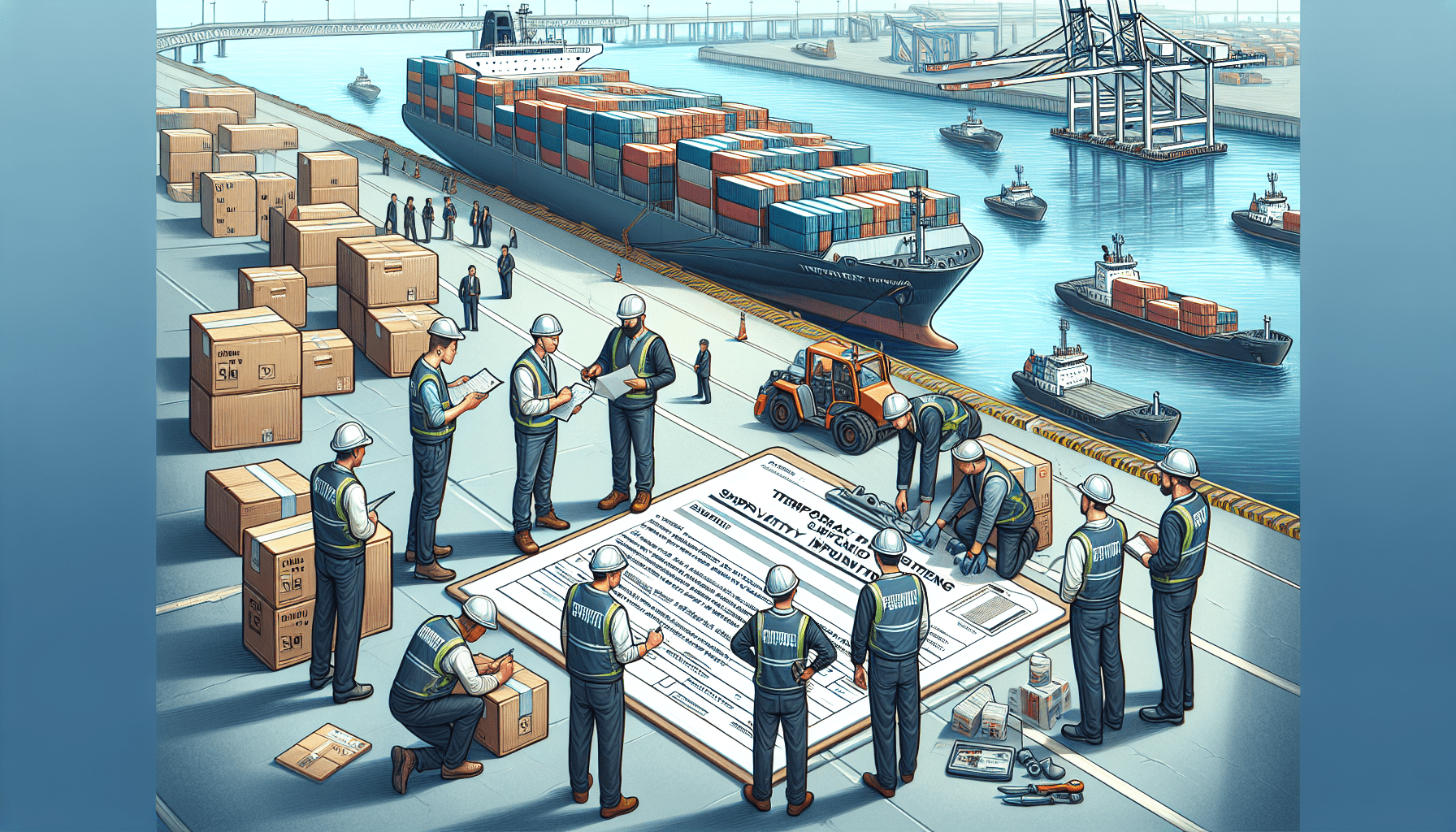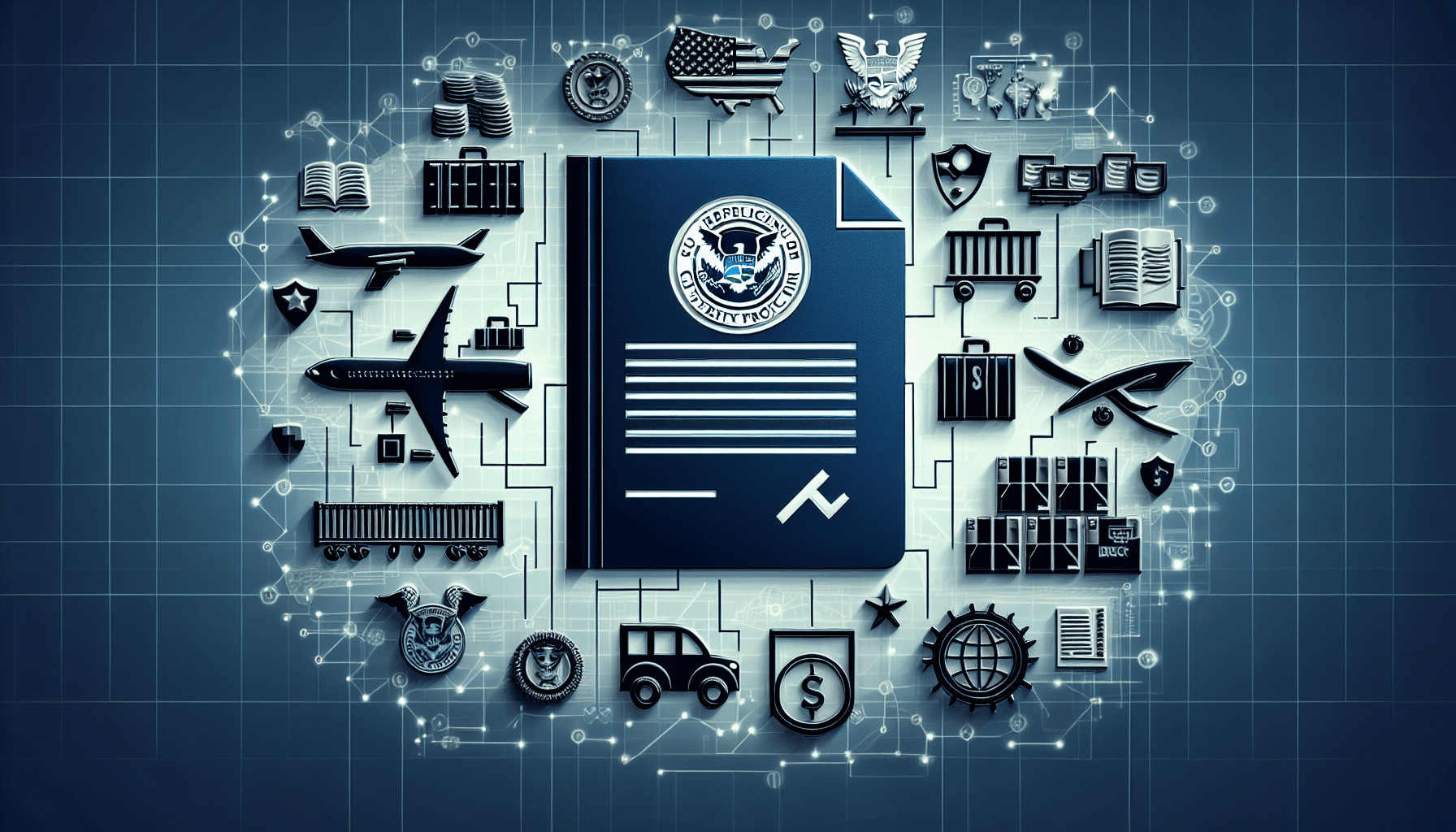Can The ISF Be Filed For Goods Imported For Repair Or Servicing?
Have you ever wondered if the Importer Security Filing (ISF) can be filed for goods imported for repair or servicing? Well, the answer might surprise you. The ISF, which is a requirement for all shipments entering the United States, aims to enhance the security of cargo and provide valuable information to customs officials. In this article, we will explore whether or not filing the ISF is necessary for goods that are imported purely for the purpose of repair or servicing. So, let’s dive in and unravel the details on this intriguing topic.

ISF and Its Purpose
What is ISF?
The Importer Security Filing (ISF) is a requirement by the U.S. Customs and Border Protection (CBP) for importers to provide information about their cargo before it arrives in the United States. It is a security measure aimed at enhancing border security and preventing terrorism. The ISF is filed electronically and includes details about the shipper, the cargo, and the vessel carrying the goods.
Importance of ISF in Customs Clearance
The ISF plays a crucial role in the customs clearance process. By requiring importers to submit information in advance, the CBP can assess the potential risk associated with imported goods and take necessary measures to maintain security. The ISF also helps expedite the clearance process by providing customs officials with essential information upfront, enabling them to identify potential issues and address them in a timely manner.
Importation for Repair or Servicing
Understanding importation for repair or servicing
Importation for repair or servicing refers to the process of bringing goods into the United States that require repairs, maintenance, or servicing. This could include machinery, vehicles, equipment, or any other item that needs specialized attention to restore its functionality or performance.
Types of goods eligible for importation for repair or servicing
Various goods are eligible for importation for repair or servicing. These may include industrial machinery, electronic equipment, vehicles, aircraft, medical devices, and even art or antiques that need restoration. Importation for repair or servicing allows businesses and individuals to access specialized expertise and services in the United States to address their specific repair or maintenance needs.
ISF Filing Requirements
General ISF filing requirements
To comply with ISF filing requirements, importers must provide accurate and timely information to the CBP. The general filing requirements include the consignee’s name and address, manufacturer or supplier information, the country of origin, the Harmonized System (HS) code, the container stuffing location, and the bill of lading number. Failing to meet these requirements can lead to penalties and delays in customs clearance.
Specific requirements for goods imported for repair or servicing
For goods imported for repair or servicing, additional information is usually required in the ISF. This may include details about the nature of the repair needed, the specific parts or components to be replaced or repaired, and any certifications or documentation related to the repair process. Providing accurate and comprehensive information is crucial to ensure a smooth customs clearance process.

Step-by-Step Process of ISF Filing
Gathering necessary information
The first step in ISF filing is to gather all the necessary information about the imported goods. This includes obtaining details about the repair or servicing requirements, identifying the specific parts or components involved, and ensuring all documentation related to the repair process is available.
Submitting ISF through the ACE portal
Once all the required information is gathered, the importer can submit the ISF electronically through the Automated Commercial Environment (ACE) portal. The ACE portal is the CBP’s online platform for managing trade-related activities, including the filing of ISF. Importers can create an account, enter the required information, and submit the ISF directly through the portal.
Paying the ISF bond fee
In addition to submitting the ISF, importers must also pay the ISF bond fee. The bond acts as a financial guarantee to ensure compliance with customs regulations and covers any potential penalties or duty owed. The bond fee can be paid through the ACE portal, and importers have the option to obtain a continuous bond or a single transaction bond, depending on their import volume and frequency.
Benefits of Filing ISF for Goods Imported for Repair or Servicing
Streamlined customs process
Filing the ISF for goods imported for repair or servicing allows importers to streamline the customs process. By providing all the necessary information in advance, customs officials can assess the goods more efficiently and make necessary preparations for their entry into the United States. This helps avoid delays and ensures a smoother clearance process.
Avoiding penalties and delays
Complying with ISF filing requirements helps importers avoid penalties and delays. Failing to submit the ISF or providing inaccurate information can result in financial penalties and the potential seizure of goods. By fulfilling the ISF obligations, importers demonstrate their commitment to compliance, reducing the risk of penalties and ensuring a more efficient customs clearance experience.
Ensuring compliance with customs regulations
ISF filing for goods imported for repair or servicing ensures compliance with customs regulations. The CBP requires importers to provide accurate and comprehensive information to maintain the security of the border and facilitate trade. By meeting these requirements, importers contribute to a more secure supply chain and help prevent unauthorized or unlawful activities.
Bonding Requirements for Goods Imported for Repair or Servicing
Understanding the ISF bond
The ISF bond is a financial guarantee required by the CBP to ensure compliance with customs regulations. It serves as a protection for the government in case of any non-compliance or violation by the importer. The bond can cover various aspects, such as duty payments, penalties, and potential claims arising from the importation process.
Bond amount for goods imported for repair or servicing
The bond amount for goods imported for repair or servicing may vary depending on various factors, such as the value of the goods, the level of risk associated with the import, and the importer’s compliance history. Importers can work with a customs broker or a surety company to determine the appropriate bond amount and ensure they meet the bonding requirements set by the CBP.
ISF Cargo for more Information
Documentation and Information Required
Types of documentation needed
For goods imported for repair or servicing, specific documentation is required in addition to the standard ISF documentation. This may include invoices and purchase orders for the repair or servicing, certifications or technical specifications related to the repairs, and any additional documentation specifying the required replacement parts or components.
Specific information required for goods imported for repair or servicing
In addition to the standard ISF information, specific details about the repair or servicing are necessary. This may include the nature of the repair or maintenance required, the estimated time for completion, the qualifications and certifications of the repair service provider, and any supplementary information that helps customs officials understand the purpose and requirements of the importation.
Common Challenges and Solutions
Delays in ISF filing
One common challenge in ISF filing for goods imported for repair or servicing is delays in gathering the required information. Since repair needs and specific parts may not always be known in advance, importers may face difficulties in providing complete and accurate information within the required timeframe. To overcome this challenge, importers should establish effective communication channels with their repair service providers and provide a timeline for gathering the necessary information.
Missing or incorrect information
Another challenge is the submission of incomplete or inaccurate information in the ISF. This can lead to delays and potential penalties. Importers should ensure they have a streamlined process for verifying and double-checking the information they provide in the ISF. Working closely with their customs broker or legal advisor can help in ensuring the accuracy and completeness of the information.
Communication issues with customs authorities
Sometimes, importers may face communication issues with customs authorities regarding the ISF filing for goods imported for repair or servicing. This can result in confusion or misunderstandings, causing delays or non-compliance. Importers should establish a clear line of communication with customs officials or seek assistance from a customs broker to ensure effective and timely communication throughout the ISF filing process.
Consequences of Non-Compliance
Penalties for non-compliance
Non-compliance with ISF filing requirements can result in significant penalties imposed by the CBP. These penalties can vary based on the severity of the violation, the amount of duty owed, and the intent behind the non-compliance. Importers may face monetary fines, shipment holds, or even suspension or revocation of their import privileges.
Customs holds and possible confiscation
When ISF requirements are not met, customs authorities may place a hold on the imported goods. This can lead to delays in the release of the goods and incur additional storage or demurrage charges. In some cases of severe non-compliance, customs officials may confiscate the goods entirely, resulting in a loss for the importer.
Conclusion
Importance of filing ISF for goods imported for repair or servicing
Filing the ISF for goods imported for repair or servicing is crucial for ensuring compliance with customs regulations and maintaining a smooth customs clearance process. By providing accurate and comprehensive information, importers can contribute to border security and facilitate trade.
Compliance and efficiency in customs clearance
Complying with ISF filing requirements not only helps importers avoid penalties and delays but also ensures efficient customs clearance. By meeting the necessary filing requirements, importers demonstrate their commitment to compliance, streamlining the clearance process and reducing the risk of complications or potential confiscation of goods.
Learn more about Importer Security Filing timeline. Know more for Customs bond Filing. Feel free to Importer Security Filing support. Return to Maritime Cargo Filing.
